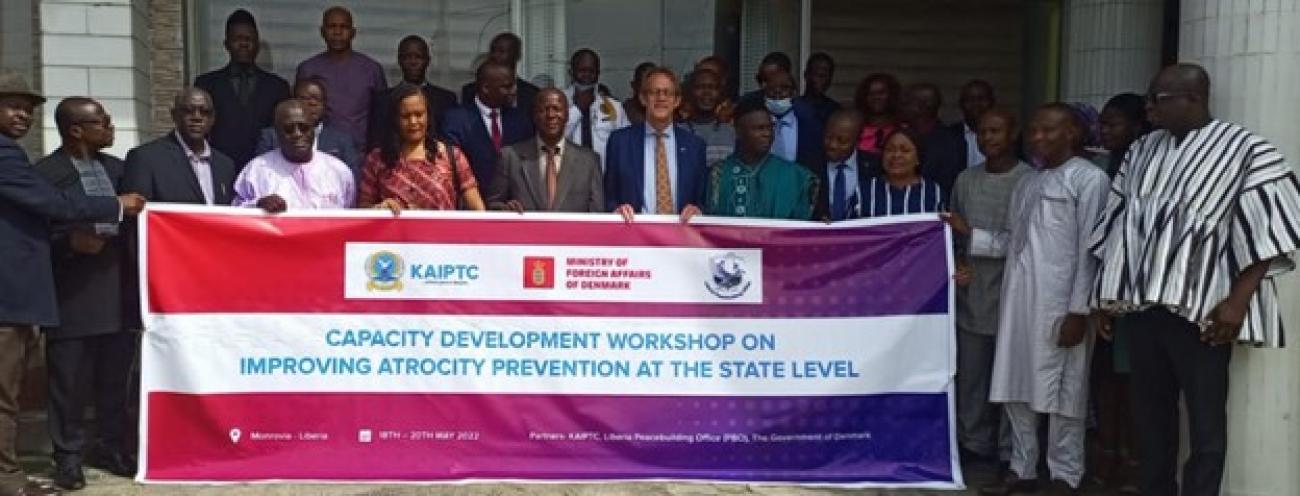The workshop commenced Wednesday, May 18, 2022, in Monrovia with a call for governments in Africa to invest in preventing atrocity. It is being organized by the Kofi Annan Center for Peacekeeping Training Center and the Government of Ghana in collaboration with the Liberia Peacebuilding Office. The aim of the workshop is to develop regional capacity for improving atrocity prevention in the six countries in West Africa.
Participants at the workshop will also discuss gains made in the fight against atrocities and the need to put in place an early warning system and the political will to prosecute by stakeholders should be a priority.
The workshop is also intended to make stakeholders more transparent, accountable, and timely in responding to crimes of atrocities, and to strengthen the legal policies by protecting them. Participants at the workshop also want civil society organizations to see themselves as significant partners in the fight against crimes of atrocities.
The UN Resident Coordinator , Niels Scott, attended the event and extended appreciation to the organizers for hosting such an important meeting, an opportunity for participants to re-affirm their commitment to R2P, as well as to discuss and debate issues pertaining to the prevention of mass atrocity crimes and the protection of populations at risk in Liberia and the region. Mr. Scott also commended the Liberia Peacebuilding Office and the Kofi Annan International Peacekeeping Training Centre – with support from the Government of Denmark – for "reminding us of the need to help prevent egregious violations of international human rights and humanitarian law, to save vulnerable populations from imminent danger, to strengthen accountability for violations as a critical deterrent, and to help build Liberia’s capacity to prevent mass atrocity crimes".
The UN Resident Coordinator further highlighted that, " for the principle and spirit of R2P to be effectively implemented in Liberia, the Government of Liberia must emphasize prevention. This will include addressing the root causes of the violent conflict, strengthening good governance, putting in place a virile judicial system, and heeding early warning signs, especially through the Early Warning and Early Response Mechanism. Government must also demonstrate the political will and objectively work as a team for timely and decisive responses" . He recognized the role of civil society organizations, especially women and youth, in advocacy surrounding the promotion of mass atrocity prevention, facilitating dialogue with the government, and encouraging more international dialogue on prevention.
In conclusion, Mr. Scott reiterated the commitment of the UN to support the work of the government in a large variety of ways, from strengthening inclusive political institutions and development coordination, to providing guidance and encouragement on ensuring equality in public institutions, and to preventive diplomacy and mediation.



